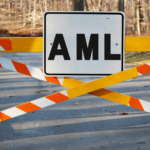Yelp hat eine Klage gegen Google eingereicht, die sich auf das wettbewerbswidrige Verhalten des Tech-Giganten konzentriert. In der Klage wirft Yelp Google vor, seine Monopolstellung im Bereich der allgemeinen Suche zu missbrauchen, um den Markt für lokale Suchdienste und Werbeanzeigen zu dominieren.
Kernpunkte der Klage
Yelp behauptet, dass Google systematisch seine eigenen Produkte in den Suchergebnissen priorisiert, auch wenn diese nicht unbedingt die besten Optionen für die Nutzer darstellen. Dieses sogenannte „Self-Preferencing“ führe dazu, dass Google seine Konkurrenz in den Schatten stellt und deren Wachstum behindert. Yelp argumentiert, dass diese Praktiken nicht nur dem Wettbewerb schaden, sondern auch den Verbrauchern eine schlechtere Auswahl bieten, da sie nicht immer die qualitativ besten Informationen oder Angebote erhalten.
Die Klage stützt sich auf eine frühere Entscheidung im August 2024, in der Google von einem US-Gericht wegen der Aufrechterhaltung eines illegalen Monopols im Bereich der Suche verurteilt wurde. Yelp sieht in dieser Entscheidung eine solide Grundlage, um ähnliche wettbewerbswidrige Praktiken auch im Bereich der lokalen Suche anzufechten.
Mögliche Auswirkungen auf Google
Sollte Yelp in diesem Verfahren Erfolg haben, könnten die Folgen für Google erheblich sein. Es würde Google nicht nur dazu zwingen, seine Suchalgorithmen zu ändern, um eine faire Darstellung der Ergebnisse zu gewährleisten, sondern könnte auch erhebliche finanzielle Strafen nach sich ziehen. Ferner könnte dies ein Präzedenzfall für weitere Unternehmen sein, die sich durch Googles Marktmacht benachteiligt fühlen.
Die Klage könnte auch über die USA hinaus Auswirkungen haben. Die Europäische Union hat in der Vergangenheit bereits strenge Maßnahmen gegen Google wegen wettbewerbswidriger Praktiken ergriffen, darunter hohe Geldstrafen und die Forderung nach strukturellen Änderungen im Geschäftsmodell des Unternehmens. Sollte Yelp erfolgreich sein, könnte dies die EU dazu veranlassen, ähnliche Maßnahmen zu ergreifen, insbesondere da der Schutz des Wettbewerbs und der Verbraucherauswahl in Europa hohe Priorität hat.
















